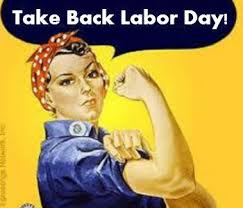Images of protestors standing at a picket line demanding the protection of workers’ rights characterized the American labor movement. Today, guaranteed minimum wage, health care benefits, and 40-hour work weeks have all become fundamental expectations for employees around the nation. But despite profound policy advancements over the past two centuries, many workers are still grappling with the same labor battle. In Rhode Island particularly, employees are vigorously fighting rampant wage theft, coercion, intimidation, and legal threats. Unfortunately for many workers in the state — as well as across the nation — the quotidian work day is complicated by exploitation from employers coupled with structural hindrances that prevent workers from seeking justice.
Consider one central principle: getting a due wage. The Economic Policy Institute estimates that lost wages constitute $50 billion nationwide per year. Rhode Island, along with other states, suffers from a wage theft epidemic; the state has seen numerous cases where employees do not receive contractually agreed upon salary or benefits. The Providence Journal has often highlighted common examples of exploitation, like “minimum-wage and overtime law violations, altered work records, misclassification of employees as independent contractors, stolen tips, or failure to pay at all.” The interstate work of many Rhode Island jobs complicates the state’s wage theft problem; companies can hide behind jurisdictional issues to avoid paying their employees. Moreover, employers can easily and maliciously spin claims of stolen wages in court by accusing workers of scheming for more money. More often than not, wage theft in the Ocean State indicates systematic maltreatment that disproportionately affects low-wage and minority workers.
José Henao, an immigrant painter from Colombia now living in Rhode Island, travels throughout the northeast, working 12-hour days with limited 15-minute breaks for LazCo Contracting Inc. After looking into his payment history, he realized that he wasn’t being paid for his overtime hours. LazCo frequently misled him regarding the rules of overtime, both by invoking contradictory company policies and even denying that he had actually worked overtime. By casting him as a worker seeking retribution who had conjured up false claims of wage theft, LazCo was able to evade Henao’s claims. Confronted with these challenges, Henao, one of a workforce entirely composed of immigrants, pursued his claims to overtime pay. Speaking to the Providence Journal, Henao’s boss openly admitted to his company’s regular exploitation of immigrants.
Henao’s story isn’t uncommon in Rhode Island — immigrants are often the targets of company theft. An attendee to a pro-worker meeting in Providence, recalling her experience as an immigrant restaurant worker, noted: “[the manager] looks for people who have come directly from Guatemala. He doesn’t pick people who are aware. He doesn’t select people who say no.” In this observation, she’s identified a disturbing occurrence in immigrant employment: Employers exploit the unfamiliarity of immigrant workers to minimize their wages and suppress their rights.
Workers’ inability to organize compounds this blatant manipulation. As the grassroots organization Jobs With Justice explains, immigrants are often hired through “guest-work visas,” whereby they’re not in a position to demand higher pay, benefits, entitlements, and other necessities. Court and civil suits are rarely an option for obvious reasons: Legal fees are high, representation is often inadequate, and low-wage employees simply can’t afford to miss work. Most, if not all undocumented workers can’t even organize to fight abuse since, as Jobs With Justice explains, employers discourage organizing efforts with threats of deportation.
But wage suppression goes beyond immigrant workers. In the restaurant industry, waiters and waitresses face a unique set of challenges. Most commonly, restaurant employees work on a “tipped minimum wage” of $3.39 per hour — 35 percent of Rhode Island’s $9.60 per hour minimum. Ideally, with customer tips, the worker should be able to make at least $9.60 per hour. Otherwise, the employer is supposed to compensate with increased wages. Unsurprisingly, the law often falls far too short of this goal, since enforcement is so difficult. Employees would need to track hourly tips in reference to hourly wages, which constantly fluctuate. It isn’t uncommon for employers to pocket employees’ tips and use them to pay other workers. Even if tipped workers receive the full tip, their living depends on the unreliable goodwill of customers. Whatever the intention of the law, in practice, waiters and waitresses subsist on a wage far less than the state minimum wage, despite tips. In the end, tipped workers are twice as likely as other workers to live in poverty, including other minimum wage jobs. Moreover, when over 70 percent of female workers in Rhode Island are subject to a tipped minimum wage, and 35 percent of tipped women are single mothers, this becomes, as grassroots organizer Mike Araujo calls it “a legalized form of discrimination.”
Though certain groups are hit especially hard by exploitation, workers across the board face monumental challenges to organizing and fighting for their rights. Employees who fight back put their jobs, income, and savings on the line. Furthermore, many businesses and employers aggressively discourage and block organization; the Economic Policy Institute reports that 34 percent of employers fire workers during National Labor Relations Board elections. Three in four employers facing unionization have hired anti-union consultants for advice. Challenged by insurmountable obstacles preventing organization and advocacy, it’s no wonder that workers have trouble finding food, shelter, and even childcare.
For Providence citizen and single mother Moira Walsh, this is just the case. After working at a diner for a number of years, she recalls being invited to a bar by a colleague who connected her with pro-worker advocates. The next day, she attended an event she thought was a pro-waitress rally — as it turns out, it was actually a State Senate hearing. After giving her testimony, Walsh recalls, “I went out to the hallway and cried hysterically — I thought they were going to fire me. [My boss] has [since] tried to fire me about seven or eight times.” Though she has fought back with the help of many Rhode Island advocacy organizations, she notes that she and many other workers in similar positions have had to rely upon workers’ rights groups that specialize in various interest areas. Constantly switching between nonprofit organizations just to secure simple legal benefits is an untenable solution.
With the prevalence of unethical employer behavior and the obstacles that many employees face, a third party is perhaps necessary for any hope of progress — specifically, the government. Northwestern University Professor Daniel Galvin’s study of state labor laws succinctly concludes that state action is both necessary and effective for labor reform: Stronger penalties for wage theft and rights violations empirically lead to a sizable drop in such crimes. But even amidst pervasive working class struggles, Rhode Island still hasn’t clocked in. Encumbered by lobbyists, economic concerns, and general disinterest, the government — the labor movement’s “last line of defense” — is falling short.
Most often, the state’s role in this battle stems from a disturbing inability to understand the perspectives of low-wage workers. In one example, a pro-labor lobbying group brought in a collection of Rhode Island workers to testify about their difficulties to their state representatives. One frustrated worker cornered her representative and began to yell, “You don’t understand what it’s like to be poor!” Walsh, who accompanied her to the state house, recounts that the representative informed the group leader that he would “actively fight against this pro-worker legislation.” Several other representatives collectively deemed it inappropriate for a constituent to challenge them in that way.
Some legislators are willing to listen, to meet their constituents in the middle or acknowledge their struggles. In the lived experiences of many Rhode Island workers, this happens rarely — consequently, groups and individuals themselves are trying to influence Rhode Island politics. Around the nation, organizations like Jobs for Justice and the Working Families Party are also taking on new political roles, while unions are starting to shift their efforts away from collective bargaining with employers toward negotiating policy with representatives. Difficult times call for strict government accountability, and workers should push for reforms when their state has the ability to stop employers from trampling on their rights. Perhaps Rhode Island, with its hyper-localized politics, can serve as a model of advocacy and success.
Decades of social progress have given workers the fundamental rights that exist today. But when companies and employers trample on their workers’ rights and dues, it takes more than a collection of nonprofit organizations and worker demonstrations to engender reforms. Until the state steps up to the plate, workers will only continue to pay.

Art by Grace Zhang
